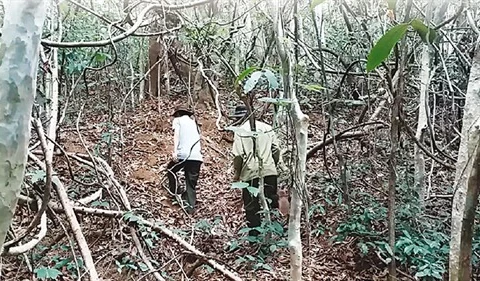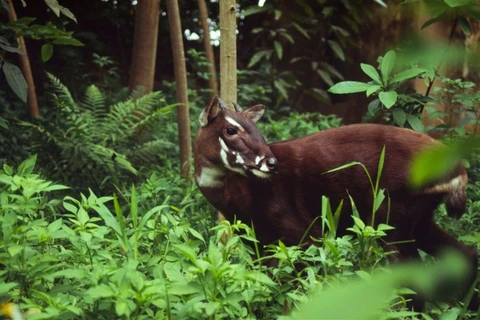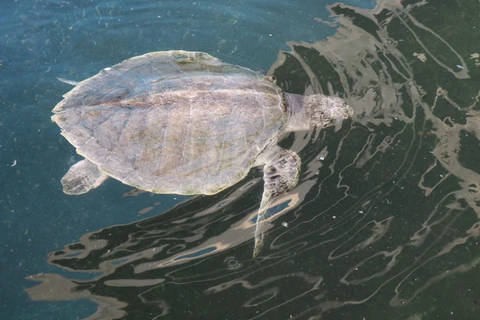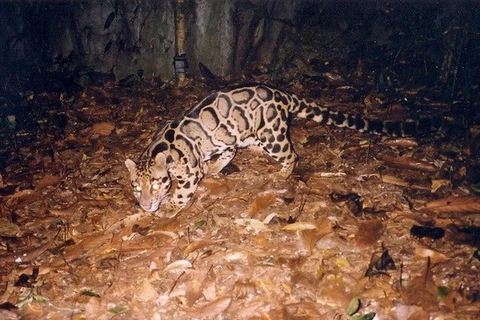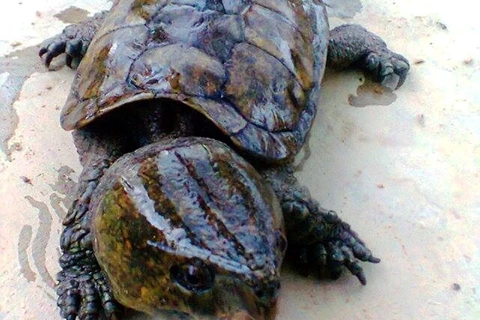 Sea turtles found in a woldlife trafficking case. Vietnam has made great strides in the fight against wildlife crime. (Photo: ENV)
Sea turtles found in a woldlife trafficking case. Vietnam has made great strides in the fight against wildlife crime. (Photo: ENV)
Hanoi (VNA) – Vietnam has made great strides in the fight against wildlife crime, said Bui Thi Ha, Deputy Director of Education for Nature Vietnam (ENV), a non-governmental organisation on the reservation of nature and the protection of the environment.
She made the remark ahead of the London 2018 Illegal Wildlife Trade Conference, which will be held in the UK in October.
Ha said the revised 2015 Penal Code, which took effect earlier this year, has begun to show its significance in Vietnam’s wildlife protection. The law has erased legal loopholes, imposed stricter punishments on serious violations, and served as the legal foundation for authorities to handle wildlife crime.
In November 2016, Vietnam destroyed 2.1 tonnes of elephant tusks in Hanoi for the first time, demonstrating the country’s commitments to the destruction of tusks and rhino horns seized in illegal smuggling cases.
In early 2017, the northern border Lao Cai province destroyed 43 elephant tusks.
This year, a 13-month jail term was imposed on Nguyen Mau Chien, the mastermind of a ring trafficking wild animal products from Africa to Vietnam, while Hoang Tuan Hai got a 4.5-year sentence in prison for smuggling over 10 tonnes of sea turtles in Khanh Hoa central coastal province.
Vietnam has made efforts to prohibit trading activities on rhino horns, meanwhile the country is also seeking measures to stop the illegal trading of tigers and control the number of tigers in private establishments.
The ENV said some possible solutions include the closure of websites advertising the trading of endangered animals and more investigations into smugglers to arrest and impose appropriate punishments.
Recently, many captive moon bears were voluntarily handed over to authorised agencies. The number of unlawfully-kept bears nationwide declined from 4,300 in 2005 to stand at about 780 as of September 2018.–VNA
